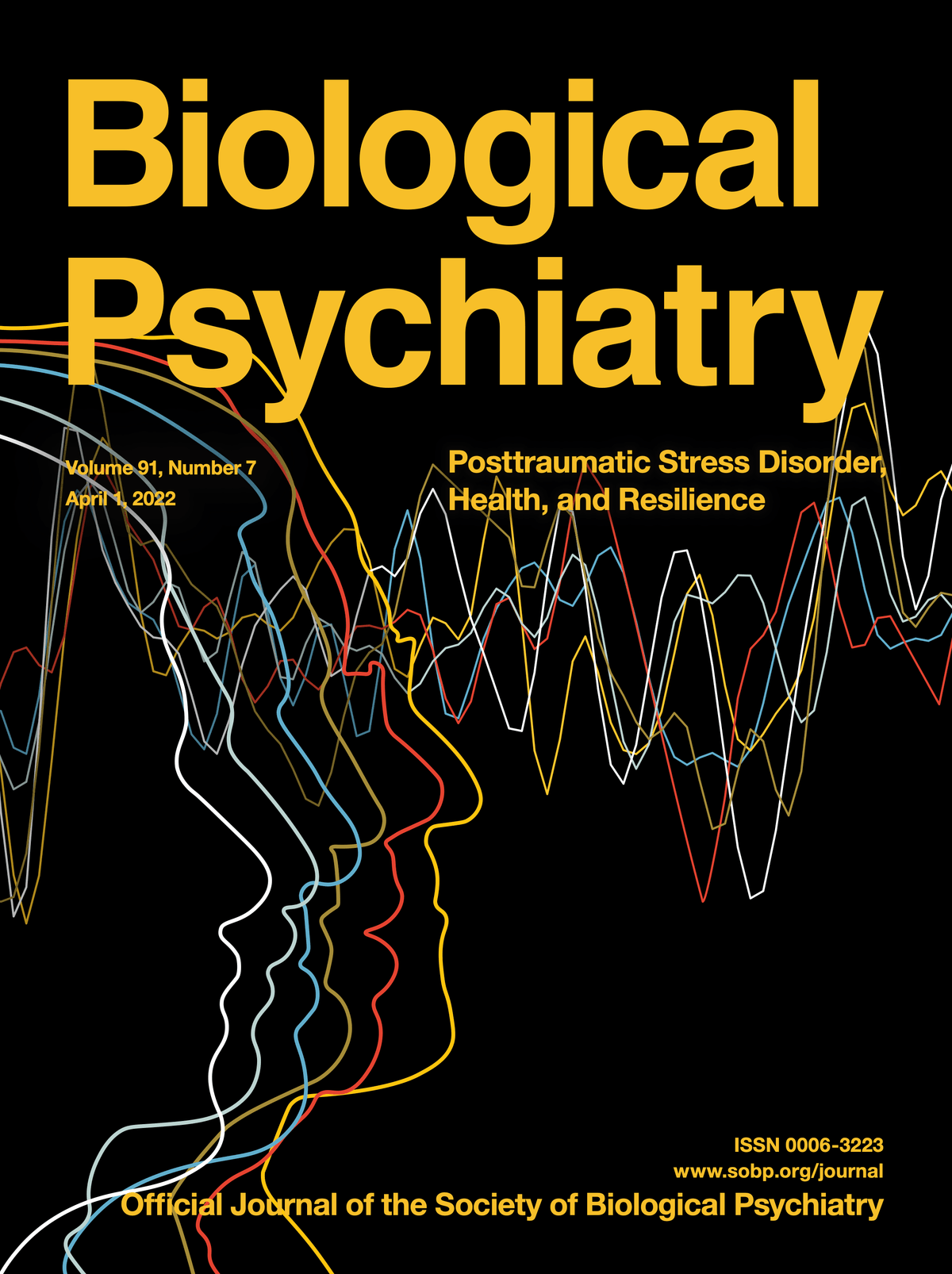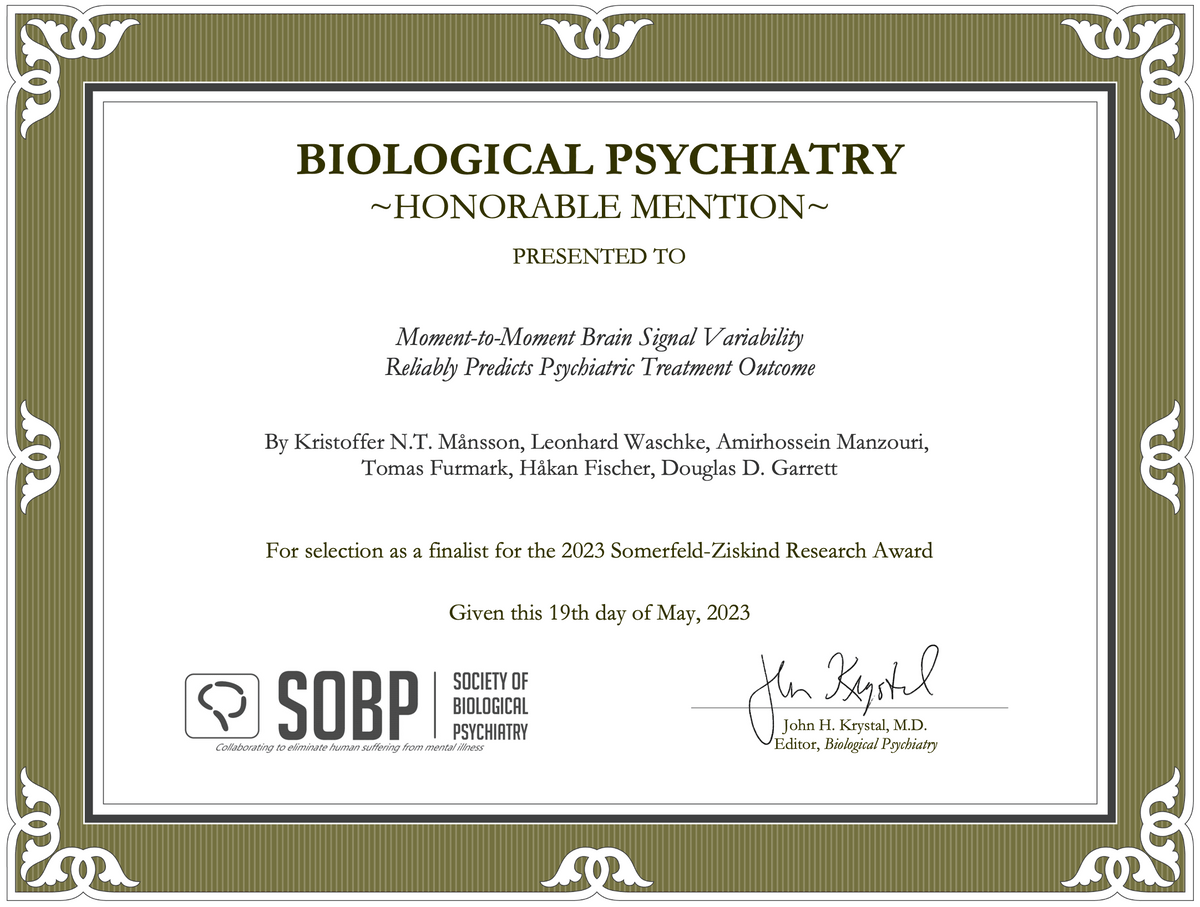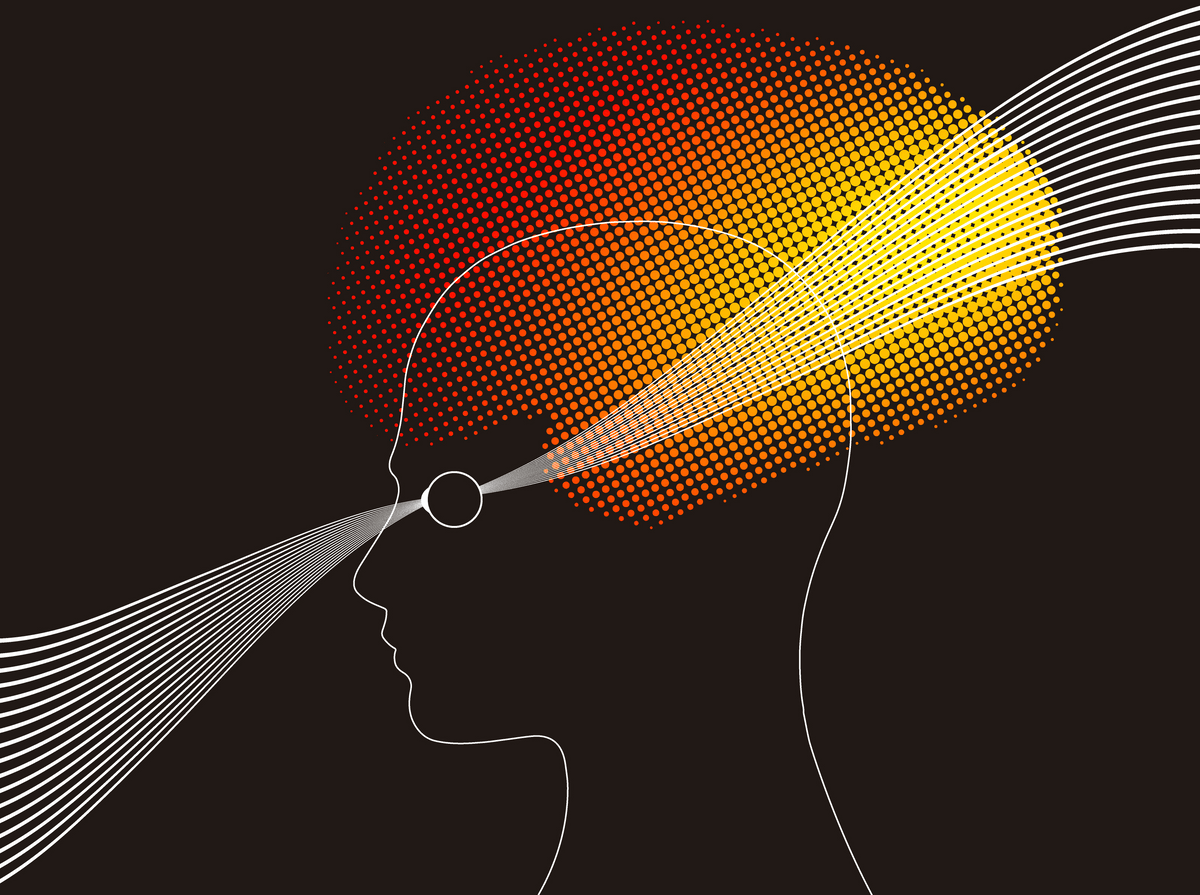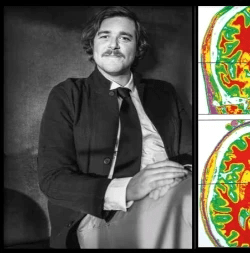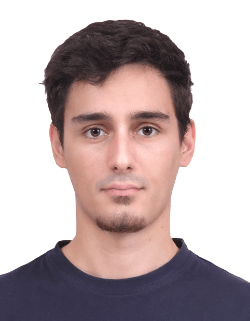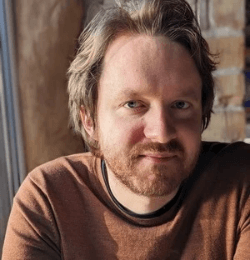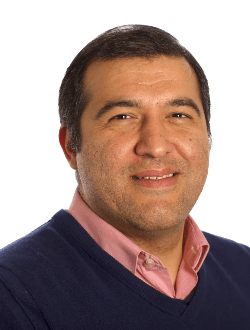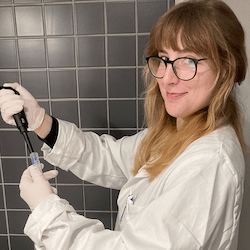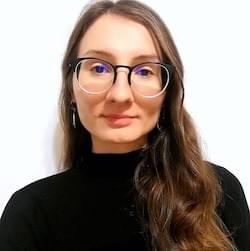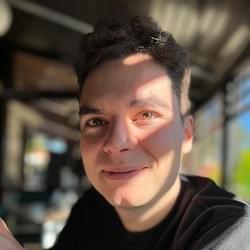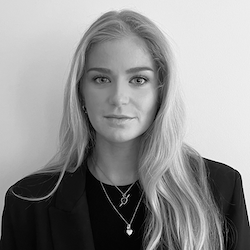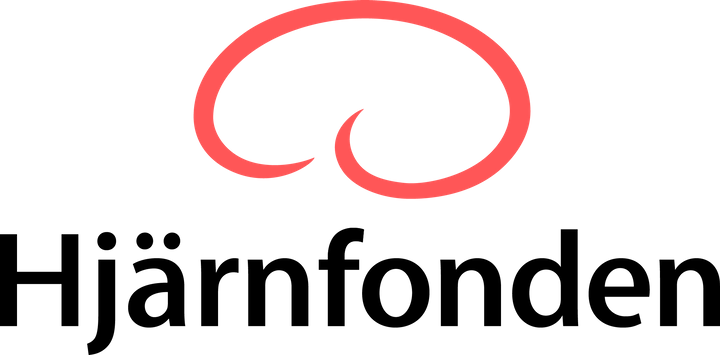

Mental Health Neural Dynamics Laboratory
Mental Health Neural Dynamics Laboratory
Karolinska Institutet
Karolinska Institutet
Things we like to do

The promise of investigating neural variability in psychiatric disorders
Postdoc Konstantinos Tsikonofilos latest review paper is now out!
Tsikonofilos, K., Kumar, A., Ampatzis, K., Garrett, D.D., Månsson, K. N. T. (In press). The promise of investigating neural variability in psychiatric disorders. Biological Psychiatry. https://www.biologicalpsychiatryjournal.com/article/S0006-3223(25)00102-7/fulltext

The researcher's guide to selecting biomarkers in mental health studies
Clinical mental health researchers may understandably struggle with how to incorporate biological assessments in clinical research. The options are numerous and are described in a vast and complex body of literature. Here we provide guidelines to assist mental health researchers seeking to include biological measures in their studies.
Verhoeven, J. E., Wolkowitz, O. M., Barr Satz, I., Conklin, Q., Lamers, F., Lavebratt, C., Lin, J., Lindqvist, D., Mayer, S. E., Melas, P. A., Milaneschi, Y., Picard, M., Rampersaud, R., Rasgon, N., Ridout, K., Söderberg Veibäck, G., Trumpff, C., Tyrka, A. R., Watson, K., … Han, L. & Månsson, K. N. T. (2024). The researcher’s guide to selecting biomarkers in mental health studies. BioEssays, 46(10), e2300246. https://doi.org/10.1002/bies.202300246

Moment-to-moment brain signal variability reliably predicts psychiatric treatment outcome
Månsson, K. N. T., Waschke, L., Manzouri, A., Furmark, T., Fischer, H., & Garrett, D. D. (2022). Moment-to-moment brain signal variability reliably predicts psychiatric treatment outcome. Biological Psychiatry. https://doi.org/10.1016/j.biopsych.2021.09.026
Presentation on YouTube, click here!

Honorable Mention from Biological Psychiatry's Somerfeld-Ziskind Research Award
We are very honored to be short-listed for the 2023 Somerfeld-Ziskind Research Award. Thanks!
Månsson, K. N. T., Waschke, L., Manzouri, A., Furmark, T., Fischer, H., & Garrett, D. D. (2022). Moment-to-moment brain signal variability reliably predicts psychiatric treatment outcome. Biological Psychiatry. https://doi.org/10.1016/j.biopsych.2021.09.026

Investigate rapid brain plasticity using structural magnetic resonance imaging
Olivo, G., Lövdén, M., Manzouri, A., Terlau, L., Jenner, B., Jafari, A., Petersson, S., Li, T.-Q., Fischer, H., & Månsson, K. N. T. (2022). Estimated Gray Matter Volume Rapidly Changes after a Short Motor Task. Cerebral Cortex. https://doi.org/10.1093/cercor/bhab488
Månsson, K. N. T., Cortes, D. S., Manzouri, A., Li, T.-Q., Hau, S., & Fischer, H. (2020). Viewing Pictures Triggers Rapid Morphological Enlargement in the Human Visual Cortex. Cerebral Cortex , 30(3), 851–857. https://doi.org/10.1093/cercor/bhz131
The illustration was featured as a cover image in Cerebral Cortex, march 2020. Illustration by Staffan Lager.Latest news from the lab
New funding from the Swedish Research Council (Vetenskapsrådet) for psychiatric research
2025.11.20: Continued support from Vetenskapsrådet. We are proud and humbled to share that our project “From noise to signal: Neural variability as a predictive marker for anxiety, depression, and psychiatric treatment response” has been awarded additional funding from the Swedish Research Council (Vetenskapsrådet). This support strengthens our long-term efforts to understand how moment-to-moment neural variability can improve prediction of treatment outcomes and advance precision mental health. We are grateful to our collaborators and team members whose work made this possible, and we look forward to continuing this exciting line of research.
Continued support from CIMED
2025.06.23: Continued support from the Center for Innovative Medicine (CIMED). Dr Månsson was recently granted continued support for the TREVAR study: "From noise to signal: Neural variability as a predictive marker for anxiety, depression, and treatment response". Our collaborations with Region Stockholm health care and Internetpsykiatri at campus Flemingsbergs continues for another 3 years (2026-2028). Thank you CIMED!
Funding to investigate insomnia patients
2024.10.23: New grant. Region Stockholm and Stockholm University have awarded two years of funding for our investigation into 'Moment-to-moment variability as a predictor of cognitive behavioral therapy (CBT) outcomes in insomnia treatment.' This project builds on our ongoing TREVAR study, and we are especially pleased to welcome Dr. Leonie Balter to the team for this important work.
Funding from the Swedish Research Council
2023.11.06: New grant. The Swedish Research Council awarded Dr Månsson and collaborators (Professor Tor Wager, Mats Lekander and Dr Joar Gusterstam) with 6 MSEK for a project entitled "Placebo responsiveness and cognitive behavior therapy outcomes: Investigating expectations and neural variability in anxious individuals". Exciting project coming up!
Large European grant to investigate children and adolescents in Romania
2023.08.21: New grant with Babeș-Bolyai University, Romania. More exciting times ahead! Dr Månsson received €1.300.000 from the European Union and the Romanian Government to investigate anxiety and depression in children and adolecents. More information to come!
Funding to study humans and zebrafish
2022.10.14: New grant. Dr Månsson and Dr Ampatzis received funding from KIRI Fellow "Investigations of brain signal variability and rapid plasticity during approach-avoidance of fear: experiments of humans and zebrafish". Postdoc position will soon be announced!
New grant from the Swedish Brain Foundation (Hjärnfonden)
2022.07.04: New grant. Dr Månsson received 600.000 SEK from the Swedish Brain Foundation for a project entitled "Placebo response in cognitive behavior therapy: An experimental study on expectations in social anxiety disorder". Thanks to Hjärnfonden!
2.4 MSEK to investigate psychiatric patients' neural variability
2022.06.27: New grant. Dr Månsson was awarded 2.400.000 SEK for a study aiming at "Predicting cognitive behavior therapy outcome with patients’ expectations and neural variability". We look forward to continue our collaborative efforts with Region Stockholm health care and Internetpsykiatri at campus Flemingsbergs. Thanks to CIMED and Region Stockholm!
Prize at StratNeuro Retreat
2022.05.20 At the StratNeuro Retreat 2022 (more info here), Dr Månsson was awarded the best clinical/translational poster.
KIRI Fellow
2022.04.22: KIRI Fellow. Dr Månsson is a KIRI Fellow 2022. Karolinska Institutet's Research Incubator (KIRI) is a research forum in which a new generation of researchers can collaborate and develop joint interdisciplinary research projects in a unique interdisciplinary environment. Click here to read more!
Assistant Professor in medical science
2021.02.18: New grant and academic position. Exciting times ahead! Dr Månsson is awarded a position as Assistant Professor in medical science at Karolinska Institutet (starting 2022). The position includes research funding for 6 years, click here for more information.
Mental Health Neural Dynamics Lab

Kristoffer N T Månsson, PhD
Principal investigator, Associate Professor at Karolinska Institutet
Previous academic positions
- Visiting faculty, Dartmouth College, Hanover, New Hampshire, USA (PI: Tor Wager)
- Post doc, Max Planck UCL Centre for Computational Psychiatry and Ageing Research, Berlin/London; Center for Lifespan Psychology, Max Planck Institute for Human Development, Berlin, Germany (PI: Douglas D Garrett)
- Post doc, Department of Psychology, Stockholm University, Sweden (PI: Håkan Fischer)
- Study Director, Psychiatry Research School, Centre for Psychiatry Research, Department of Clinical Neuroscience, Karolinska Institutet, Stockholm, Sweden (2017-2020)

Konstantinos Tsikonofilos, PhD
Postdoc
Dr Tsikonofilos holds a Diploma in Applied Mathematical and Physical Sciences from the National Technical University of Athens, an MSc in Biomedical Engineering, and a PhD in Bioengineering from Imperial College London, UK. With expertise in statistics, computer science, and neurotechnology, he specializes in analyzing various datasets including spiking, local field potential, ECoG, EEG, and fMRI. His skills encompass signal processing, machine learning and statistical modeling, graph theory and computational modeling, with experience in experimental design and data collection of electrophysiological signals, as well as preclinical modeling of brain injury.
Dr Tsikonofilos previous research had a clinical focus on cognitive enhancers, hearing loss, cochlear implant design, and traumatic brain injury. Currently a postdoctoral researcher in the lab, he will work towards uncovering biomarkers of psychiatric disorders and treatment outcomes and exploring the role of neural variability and plasticity in fear avoidance behavior, utilizing multimodal datasets.

Ondrej Zika, PhD
Assistant Professor (University College Dublin, Ireland)
Dr Zika completed his BSc in Psychology & Marketing at Aberystwyth University, during which he worked as a research assistant (RA) at Caltech in John O'Doherty's lab, before moving to Oxford University first as an RA in Sonia Bishop's lab and later as a PhD student. During his PhD, Dr Zika investigated computational and neural mechanisms of aversive learning in relation to anxiety. He later joined the lab of Dr Nico Schuck at the Max Planck Institute for Human Development where he continued his work on a brad range of topics in computational psychiatry and cognitive neuroscience. At the Månsson lab, Dr Zika investigates test-retest reliability of neural signals, as well as perception of ambiguity in a psychiatric and a non-clinical sample.

Amir Manzouri, MSc
Research engineer
Amir studied medical imaging at the Royal Institute of Technology in Stockholm and has been working with neuroimaging methods as a research engineer since 2010. Amir has been involved in research on Alzheimer’s disease, gender identity, emotion, stress and anxiety disorders. Amir has extensive experience with data collection (e.g., magnetic resonance imaging, MRI scanning), and expertise in data pre- and post-processing, higher level statistical analyses on functional MRI data, e.g., psycho-physiological interactions (PPI), partial least squares (PLS), support vector machines (SVM), and independent component analysis (ICA). Moreover, Amir also has extensive expertise in structural MRI data analysis, e.g., FreeSurfer, AFNI, BrainVoyager, and voxel based morphometry (VBM), and tract-based spatial statistics (TBSS).

Julia Stache, MSc
PhD student
Julia completed her Bachelor's in Psychology at the University of Stirling, Scotland, before moving to Sweden to pursue a Master's in Psychology at Stockholm University. Since 2023, she has been working as a research assistant in Julie Lasselin's lab. Her Master's thesis explored the caregiver-participant relationship and its association with inflammatory and behavioural health outcomes during experimental sickness. Julia is currently developing a novel task to measure interoceptive beliefs about core body temperature in collaboration with Francesca Fardo’s team at Aarhus University, Denmark. Julia has a strong personal interest in neuroscience and pharmacodynamics and is collaborating with Månsson lab on an upcoming LPS study while expanding her skills in collecting and analysing fMRI data.

Oana Munteanu, MD, Psychiatrist
PhD student (Babeș-Bolyai University)
Oana is a PhD student, and a medical child and adolescent psychiatrist at Babeș-Bolyai University in Cluj-Napoca, Romania. Oana participates in the development of a study to investigates the neural correlates of social fear learning among adolescents diagnosed with anxiety disorders.

Georgian Anghelescu
PhD student (Babeș-Bolyai University)
Georgian is a computer science engineer who graduated from the Military Technical Academy "Ferdinand I" of Bucharest. Georgian is a PhD student at Babeș-Bolyai University of Cluj-Napoca and his research focuses on developing an auomated denoising technique for functional MRI data using a convolutional neural network (CNN) model.

Ana Chirakadze, MSc
Research Assistant (Babeș-Bolyai University)
Ana holds a Bachelor’s degree in Psychology from Tbilisi State University, a Master’s degree in Clinical Psychology from Caucasus University, and a Research Master’s in Cognitive Neuropsychology from Vrije Universiteit Amsterdam. She has a background in cognitive neuropsychology, clinical psychology, and neuroimaging, combining experimental, computational, and clinical approaches. Ana has gained experience in experimental designs involving psychophysics and advanced neuroimaging techniques, applying Bayesian modeling and computational analyses to explore complex brain–behavior relationships. She has previously contributed to projects on Alzheimer’s disease, psilocybin, and flicker light stimulation.

Eleni Lazaridou, BSc
Research assistant
Eleni studied Psychology at Aristotle University of Thessaloniki, Greece where she recieved her license as a psychologist. During her studies she completed a diploma thesis on the field of positive psychology and well-being in the elderly. She also acquired experience with psychological and cognitive assessment tools while volunteering in day care centers for Alzheimer's Disease patients. Eleni's bachelor internship included dealing with psychotic and alcohol dependence patients, and Eleni also conducted clinical interviews at a psychiatric clinic within a military hospital.

Josefine Tigerstedt Andresen
Research Assistant, MD student
Josefine is currently studying her third year at läkarprogrammet (medical degree), Karolinska institutet. Josefine works as a research assistant in the lab, supporting the TREVAR research project.

Lina Danils
Research Assistant, MSc student
Lina is in her fourth year of the clinical psychology program (Psykologprogrammet) at Stockholm University, with a specialization in cognitive behavioural therapy. Lina has a strong interest in neuropsychology and previous experience conducting clinical assessments of patients with acquired brain injuries. In the lab, Lina works as a research assistant, primarily focusing on clinical interviews and data collection for the TREVAR research project.

Arvid Anagrius
Research intern, MSc student
Arvid Anagrius holds a Bachelor’s degree in Development Studies from Uppsala University and is currently pursuing a Master’s degree in Clinical Psychology at Karolinska Institutet. Arvid is writing his MSc in the AXON project, examining the role of cognitive flexibility and neural variability in social anxiety.
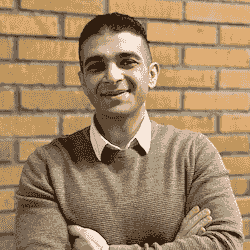
Buğra Uğur Özdemir
Research intern, MSc student
Buğra Uğur Özdemir holds a Bachelor’s degree in Psychology from TED University (Ankara, Turkey). He is currently pursuing a Master’s degree in Cognitive Science at Umeå University, alongside advanced studies in Psychology at Stockholm University. In the Månsson Lab, Buğra serves as a research intern and is preparing for his MSc thesis. His work includes setting up experimental environments, developing tasks in PsychoPy, and integrating PsychoPy with BIOPAC for psychophysiological recordings. Buğra’s primary interests focus on large-scale brain networks and the integration of multimodal neuroimaging approaches (e.g., MRI, PET, EEG, and MEG).

Camila Romero Postigo
Research intern, MSc student
Camila is currently pursuing a MSc in Medical Science with a major in Translational Physiology and Pharmacology at Karolinska Institutet. Camila holds a bachelor’s degree from Utrecht University (University College Utrecht) in Medical Science. Camila's bachelor’s thesis was on characterizing peptidergic neurons in a dorsomedial hypothalamic ensemble active during anorexia-like states. Since then, Camila has worked with structural MRI images and behavioral data analysis at the Aging Research Centre, Karolinska Institutet. In the Månsson Laboratory, Camila will investigate neural variability in patients with treatment-resistant depression undergoing ketamine treatment.

Isabel Cobelli
Research intern (Erasmus+), MSc student
Isabel completed her Bachelor's in Psychology at the University of Modena and Reggio Emilia (Unimore), Italy. She did her traineeship in the Neuropsychopharmacology Laboratory and wrote her thesis on long-term neuropsychological effects of chemotherapy on cancer patients (Colliva & Rivi et al., 2024, Diseases). Isabel recently completed her traineeship at Sant’Orsola-Malpighi Hospital in Bologna conducting psychological assessment for transplantation and counseling for hospitalized patients. She is now pursuing a Master's degree in Neuroscience and Neuropsychological rehabilitation at University of Padua, Italy. Isabel is now at Karolinska Institutet for a Erasmus + traineeship program in the Månsson laboratory.

Max Walkow
Research intern, MSc student
Max Walkow holds a Bachelor of Science in Neuroscience and Behavioral Biology from Emory University, United States, and he is currently pursuing a Master of Medical Science in Translational Physiology and Pharmacology at Karolinska Institutet. Max project investigates epigenetic aging and neural variability in patients with social anxiety disorder who have undergone cognitive behavioral therapy, with the aim of elucidating the molecular and neural mechanisms associated with treatment response.

Alumni
Visiting PhD students and postdocs
- Alice Doubliez, student at University Hospital Essen, Germany
- Enzo Nio, PhD student at University Hospital Essen, Germany
- Jingjing Ye, PhD student at University of Edinburgh, Scotland

Alumni
Internships and Bachelor or Master level theses
- National: Adam Yngve, Amanda Gruvstad, Anna Stavenberg, Arian Jafari, Björn von Gegerfelt, Bo Jenner, Hjalmar Lindström, Jennie Åberg Syed, Johannes Mogren, Markus Söderqvist, Naira Sardarian, Nils Isacsson, Sara Rajjala, Simon Höglund, Örn Kolbeinsson
- International: Laura Terlau (Osnabrück University, Germany), Liisbeth Pirn (University of Munich, Germany), Virginia Berlose (University of Padoa, Italy), Alice Clerouin (Ecole Normale Supérieure, France), Katarzyna Karpa (Universität Heidelberg, Germany), Sara Halmans (University of Lübeck, Germany), Susanna Girino (University of Padova, Italy), Federica Mazzilli (Vita-Salute San Raffaele University, Milan, Italy), Vanessa Ruggiero (University of Padova, Italy)
Extended network and collaborations
A selection of ongoing collaborations with principal investigators
Collaborators
- Andreas Frick, Uppsala University
- Brjánn Ljótsson, Karolinska Institutet
- Catharina Lavebratt, Karolinska Institutet
- Daniel Lindqvist, Lund University
- Douglas D Garrett, Max Planck Institute for Human Development, Berlin, Germany
- Gerhard Andersson, Linköping University
- Håkan Fischer, Stockholm University
- Fredrik Åhs, Mid Sweden University
- Julie Lasselin, Stockholm University & Karolinska Institutet
- Leonie Balter, Stockholm University & Karolinska Institutet
- Martin Lövdén, Gothenburg University
- Mats Lekander, Stockholm University
- Tie-Qiang Li, Karolinska Institutet
- Tomas Furmark, Uppsala University
- Tomas Ekström, Karolinska Institutet
- Tor D Wager, Dartmouth College, NH, United States
- Torbjörn Åkerstedt, Stockholm University
- Owen Wolkowitz, University of California, San Francisco, CA, United States
- Viktor Kaldo, Karolinska Institutet
- Brief presentationsRead more...What are your participants doing while youacquire the anatomical MRI brain scans? Our latest show...October 17, 2021 · PublicationRead more...Biomarkers in psychiatry remain elusive, and typical BOLD fMRI measures show low reliability. In...
Publications
Highlighted
Neuroimaging
- Tsikonofilos, K., Kumar, A., Ampatzis, K., Garrett, D. D., & Månsson, K. N. T. (2025). The promise of investigating neural variability in psychiatric disorders. Biological Psychiatry, 98(3), 195–207. https://doi.org/10.1016/j.biopsych.2025.02.004
- Månsson, K. N. T., Waschke, L., Manzouri, A., Furmark, T., Fischer, H., & Garrett, D. D. (2022). Moment-to-moment brain signal variability reliably predicts psychiatric treatment outcome. Biological Psychiatry. https://doi.org/10.1016/j.biopsych.2021.09.026
- Olivo, G., Lövdén, M., Manzouri, A., Terlau, L., Jenner, B., Jafari, A., Petersson, S., Li, T.-Q., Fischer, H., & Månsson, K. N. T. (2022). Estimated Gray Matter Volume Rapidly Changes after a Short Motor Task. Cerebral Cortex. https://doi.org/10.1093/cercor/bhab488
- Månsson, K. N. T., Cortes, D. S., Manzouri, A., Hau, S., Fischer, H. (2019) Viewing pictures triggers rapid morphological enlargement in the human visual cortex. Cerebral Cortex: https://doi.org/10.1093/cercor/bhz131
- Månsson, K. N. T., Lasselin, J., Karshikoff, B., Axelsson, J., Engler, H., Schedlowski, M., Benson, S., Petrovic, P., & Lekander, M. (2021). Anterior insula morphology and vulnerability to psychopathology-related symptoms in response to acute inflammation. Brain, Behavior, and Immunity. https://doi.org/10.1016/j.bbi.2021.09.007
Peripheral biomarkers
- Verhoeven, J. E., Wolkowitz, O. M., Barr Satz, I., Conklin, Q., Lamers, F., Lavebratt, C., Lin, J., Lindqvist, D., Mayer, S. E., Melas, P. A., Milaneschi, Y., Picard, M., Rampersaud, R., Rasgon, N., Ridout, K., Söderberg Veibäck, G., Trumpff, C., Tyrka, A. R., Watson, K., … Han, L. & Månsson, K. N. T. (2024). The researcher’s guide to selecting biomarkers in mental health studies. BioEssays, 46(10), e2300246. https://doi.org/10.1002/bies.202300246
- Lindqvist, D., Furmark, T., Lavebratt, C., Ohlsson, L., & Månsson, K. N. T. (2022). Plasma circulating cell-free mitochondrial DNA in social anxiety disorder. Psychoneuroendocrinology, 148, 106001. https://doi.org/10.1016/j.psyneuen.2022.106001
Peer-reviewed
- 47. Tsikonofilos, K., Kumar, A., Ampatzis, K., Garrett, D. D., & Månsson, K. N. T. (2025). The promise of investigating neural variability in psychiatric disorders. Biological Psychiatry, 98(3), 195–207. https://doi.org/10.1016/j.biopsych.2025.02.004
- 46. Forsström, D., Badinlou, F., Johansson, M., Ojala, O., Alaoui, S. E., Månsson, K. N. T., Rozental, A., Lundin, J., Jangard, S., Shahnavaz, S., Sörman, K., Jayaram-Lindström, N., Lundgren, T., Jansson-Fröjmark, M., & Hedman-Lagerlöf, M. (2025). Psychometric properties of the Swedish version of the Patient Health Questionnaire-9: an investigation using Rasch analysis and confirmatory factor analysis. BMC Psychiatry, 25(1), 36. https://doi.org/10.1186/s12888-024-06417-4
- 45. Ojala, O., Garke, M. Å., El Alaoui, S., Forsström, D., Hedman-Lagerlöf, M., Jangard, S., Lundin, J., Rozental, A., Shahnavaz, S., Sörman, K., Lundgren, T., Hellner, C., Jayaram-Lindström, N., & Månsson, K. N. T. (2024). The trajectory of anxiety and depressive symptoms and the impact of self-injury: A longitudinal 12-month cohort study of individuals with psychiatric symptoms. PloS One, 19(11), e0313961. https://doi.org/10.1371/journal.pone.0313961
- 44. Garke, M. Å., Hentati Isacsson, N., Kolbeinsson, Ö., Hesser, H., & Månsson, K. N. T. (2024). Improvements in emotion regulation during cognitive behavior therapy predict subsequent social anxiety reductions. Cognitive Behaviour Therapy, 1–18. https://doi.org/10.1080/16506073.2024.2373784
- 43. Verhoeven, J. E., Wolkowitz, O. M., Barr Satz, I., Conklin, Q., Lamers, F., Lavebratt, C., Lin, J., Lindqvist, D., Mayer, S. E., Melas, P. A., Milaneschi, Y., Picard, M., Rampersaud, R., Rasgon, N., Ridout, K., Söderberg Veibäck, G., Trumpff, C., Tyrka, A. R., Watson, K., … Han, L. & Månsson, K. N. T. (2024). The researcher’s guide to selecting biomarkers in mental health studies. BioEssays, 46(10), e2300246. https://doi.org/10.1002/bies.202300246
- 42. Laukka, P., Månsson, K. N. T., Cortes, D. S., Manzouri, A., Frick, A., Fredborg, W., & Fischer, H. (2024). Neural correlates of individual differences in multimodal emotion recognition ability. Cortex, 175, 1–11. https://doi.org/10.1016/j.cortex.2024.03.009
- 41. Bruin, W. B., Zhutovsky, P., van Wingen, G. A., Bas-Hoogendam, J. M., Groenewold, N. A., Hilbert, K., Winkler, A. M., Zugman, A., Agosta, F., Åhs, F., Andreescu, C., Antonacci, C., Asami, T., Assaf, M., Barber, J. P., Bauer, J., Bavdekar, S. Y., Beesdo-Baum, K., Benedetti, F.,... Månsson, K. N. T… Aghajani, M. (2024). Brain-based classification of youth with anxiety disorders: transdiagnostic examinations within the ENIGMA-Anxiety database using machine learning. Nature Mental Health, 2(1), 104–118. https://doi.org/10.1038/s44220-023-00173-2
- 40. Lindahl, J., Asp, M., Ståhl, D., Tjernberg, J., Eklund, M., Björkstrand, J., van Westen, D., Jensen, J., Månsson, K. N. T., Tornberg, Å., Svensson, M., Deierborg, T., Ventorp, F., & Lindqvist, D. (2023). Add-on pramipexole for anhedonic depression: study protocol for a randomised controlled trial and open-label follow-up in Lund, Sweden. BMJ Open, 13(11), e076900. https://doi.org/10.1136/bmjopen-2023-076900
- 39. Xiao, S., Ebner, N. C., Manzouri, A., Li, T.-Q., Cortes, D. S., Månsson, K. N. T., & Fischer, H. (2023). Age-dependent effects of oxytocin in brain regions enriched with oxytocin receptors. Psychoneuroendocrinology, 160, 106666. https://doi.org/10.1016/j.psyneuen.2023.106666
- 38. Forsström, D., Lindner, P., Månsson, K. N. T., Ojala, O., Hedman-Lagerlöf, M., El Alaoui, S., Rozental, A., Lundin, J., Jangard, S., Shahnavaz, S., Sörman, K., Lundgren, T., & Jayaram-Lindström, N. (2022). Isolation and worry in relation to gambling and onset of gambling among psychiatry patients during the COVID-19 pandemic: A mediation study. Frontiers in Psychology, 13. https://doi.org/10.3389/fpsyg.2022.1045709
- 37. Lindqvist, D., Furmark, T., Lavebratt, C., Ohlsson, L., & Månsson, K. N. T. (2022). Plasma circulating cell-free mitochondrial DNA in social anxiety disorder. Psychoneuroendocrinology, 148, 106001. https://doi.org/10.1016/j.psyneuen.2022.106001
- 36. Jayaram-Lindström, N., Rozental, A., Sörman, K., Ojala, O., Jangard, S., El Alaoui, S., Månsson, K. N. T., Shahnavaz, S., Lundin, J., Forsström, D., Hedman-Lagerlöf, M., Lundgren, T. Mental Health in Individuals with Self-Reported Psychiatric Symptoms During the COVID-19 Pandemic: Baseline Data from a Swedish Longitudinal Cohort Study. Frontiers in Psychiatry, In press
- 35. Olivo, G., Lövdén, M., Manzouri, A., Terlau, L., Jenner, B., Jafari, A., Petersson, S., Li, T.-Q., Fischer, H., & Månsson, K. N. T. (2022). Estimated Gray Matter Volume Rapidly Changes after a Short Motor Task. Cerebral Cortex. https://doi.org/10.1093/cercor/bhab488
- 34. Kumar, P., Stiernborg, M., Fogdell-Hahn, A., Månsson, K. N. T., Furmark, T., Berglind, D., Melas, P. A., Forsell, Y., & Lavebratt, C. (2022). Physical exercise is associated with a reduction in plasma levels of fractalkine, TGF-β1, eotaxin-1 and IL-6 in younger adults with mobility disability. PloS One, 17(2), e0263173. https://doi.org/10.1371/journal.pone.0263173
- 33. Li, X., Fischer, H., Manzouri, A., Månsson, K. N. T., & Li, T.-Q. (2021). A Quantitative Data-Driven Analysis Framework for Resting-State Functional Magnetic Resonance Imaging: A Study of the Impact of Adult Age. Frontiers in Neuroscience, 15, 1392. https://doi.org/10.3389/fnins.2021.768418
- 32. Månsson, K. N. T., Waschke, L., Manzouri, A., Furmark, T., Fischer, H., & Garrett, D. D. (2022). Moment-to-moment brain signal variability reliably predicts psychiatric treatment outcome. Biological Psychiatry. https://doi.org/10.1016/j.biopsych.2021.09.026
- 31. Månsson, K. N. T., Lasselin, J., Karshikoff, B., Axelsson, J., Engler, H., Schedlowski, M., Benson, S., Petrovic, P., & Lekander, M. (2021). Anterior insula morphology and vulnerability to psychopathology-related symptoms in response to acute inflammation. Brain, Behavior, and Immunity. https://doi.org/10.1016/j.bbi.2021.09.007
- 30. Hjorth, O. R., Frick, A., Gingnell, M., Hoppe, J. M., Faria, V., Hultberg, S., Alaie, I., Månsson, K. N. T., Rosén, J., Reis, M., Wahlstedt, K., Jonasson, M., Lubberink, M., Antoni, G., Fredrikson, M., & Furmark, T. (2021). Expectancy effects on serotonin and dopamine transporters during SSRI treatment of social anxiety disorder: a randomized clinical trial. Translational Psychiatry, 11(1), 559. https://doi.org/10.1038/s41398-021-01682-3
- 29. Koenig, J., Abler, B., Agartz, I., Åkerstedt, T., Andreassen, O. A., Anthony, M., Bär, K.-J., Bertsch, K., Brown, R. C., Brunner, R., Carnevali, L., Critchley, H. D., Cullen, K. R., de Geus, E. J. C., de la Cruz, F., Dziobek, I., Ferger, M. D., Fischer, H., Flor, H., … Månsson, K. N. T., … Quintana, D. S. (2021). Cortical thickness and resting-state cardiac function across the lifespan: A cross-sectional pooled mega-analysis. Psychophysiology, 58(7), e13688. https://doi.org/10.1111/psyp.13688
- 28. Li, X., Fischer, H., Manzouri, A., Månsson, K. N. T., & Li, T.-Q. (2021). Dataset of whole-brain resting-state fMRI of 227 young and elderly adults acquired at 3T. Data in Brief, 38, 107333. https://doi.org/10.1016/j.dib.2021.107333
- 27. Månsson, K. N. T., Lueken, U., & Frick, A. (2021). Enriching CBT by Neuroscience: Novel Avenues to Achieve Personalized Treatments. International Journal of Cognitive Therapy, 14(1), 182–195. https://doi.org/10.1007/s41811-020-00089-0
- 26. Åkerstedt, T., Lekander, M., Nilsonne, G., Tamm, S., d’Onofrio, P., Kecklund, G., Fischer, H., Schwarz, J., Petrovic, P., & Månsson, K. N. T. (2020). Gray Matter Volume Correlates of Sleepiness: A Voxel-Based Morphometry Study in Younger and Older Adults. Nature and Science of Sleep, 12, 289–298. https://doi.org/10.2147/NSS.S240493
- 25. Bas-Hoogendam, J. M., Groenewold, N. A., Aghajani, M., Freitag, G. F., Harrewijn, A., Hilbert, K., Jahanshad, N., Thomopoulos, S. I., Thompson, P. M., Veltman, D. J., Winkler, A. M., Lueken, U., Pine, D. S., van der Wee, N. J. A., Stein, D. J., & ENIGMA-Anxiety Working Group. (2020). ENIGMA-anxiety working group: Rationale for and organization of large-scale neuroimaging studies of anxiety disorders. Human Brain Mapping, hbm.25100. https://doi.org/10.1002/hbm.25100
- 24. Costache, M. E., Frick, A., Månsson, K. N. T., Engman, J., Faria, V., Hjorth, O., Hoppe, J. M., Gingnell, M., Frans, Ö., Björkstrand, J., Rosén, J., Alaie, I., Åhs, F., Linnman, C., Wahlstedt, K., Tillfors, M., Marteinsdottir, I., Fredrikson, M., & Furmark, T. (2020). Higher- and lower-order personality traits and cluster subtypes in social anxiety disorder. PloS One, 15(4), e0232187. https://doi.org/10.1371/journal.pone.0232187
- 23. Kraepelien, M., Schibbye, R., Månsson, K. N. T., Sundström, C., Riggare, S., Andersson, G., Lindefors, N., Svenningsson, P., & Kaldo, V. (2020). Individually Tailored Internet-Based Cognitive-Behavioral Therapy for Daily Functioning in Patients with Parkinson’s Disease: A Randomized Controlled Trial. In Journal of Parkinson’s Disease (Vol. 10, Issue 2, pp. 653–664). https://doi.org/10.3233/jpd-191894
- 22. Månsson, K. N. T., Cortes, D. S., Manzouri, A., Li, T.-Q., Hau, S., & Fischer, H. (2020). Viewing Pictures Triggers Rapid Morphological Enlargement in the Human Visual Cortex. Cerebral Cortex , 30(3), 851–857. https://doi.org/10.1093/cercor/bhz131
- 21. Han, L. K. M., Verhoeven, J. E., Tyrka, A. R., Penninx, B. W. J. H., Wolkowitz, O. M., Månsson, K. N. T., Lindqvist, D., Boks, M. P., Révész, D., Mellon, S. H., & Picard, M. (2019). Accelerating research on biological aging and mental health: Current challenges and future directions. Psychoneuroendocrinology, 106, 293–311. https://doi.org/10.1016/j.psyneuen.2019.04.004
- 20. Hjorth, O. R., Frick, A., Gingnell, M., Hoppe, J. M., Faria, V., Hultberg, S., Alaie, I., Månsson, K. N. T., Wahlstedt, K., Jonasson, M., Lubberink, M., Antoni, G., Fredrikson, M., & Furmark, T. (2019). Expression and co-expression of serotonin and dopamine transporters in social anxiety disorder: a multitracer positron emission tomography study. Molecular Psychiatry. https://doi.org/10.1038/s41380-019-0618-7
- 19. Månsson, K. N. T., Lindqvist, D., Yang, L. L., Svanborg, C., Isung, J., Nilsonne, G., Bergman-Nordgren, L., El Alaoui, S., Hedman-Lagerlöf, E., Kraepelien, M., Högström, J., Andersson, G., Boraxbekk, C.-J., Fischer, H., Lavebratt, C., Wolkowitz, O. M., & Furmark, T. (2019). Improvement in indices of cellular protection after psychological treatment for social anxiety disorder. Translational Psychiatry, 9(1), 340. https://doi.org/10.1038/s41398-019-0668-2
- 18. Rozental, A., Kottorp, A., Forsström, D., Månsson, K. N. T., Boettcher, J., Andersson, G., Furmark, T., & Carlbring, P. (2019). The Negative Effects Questionnaire: psychometric properties of an instrument for assessing negative effects in psychological treatments. Behavioural and Cognitive Psychotherapy, 47(5), 559–572. https://doi.org/10.1017/S1352465819000018
- 17. Frick, A., & Månsson, K. N. T. (2018). Brain changes in social anxiety disorder run in the family [Review of Brain changes in social anxiety disorder run in the family]. EBioMedicine, 36, 5–6. https://doi.org/10.1016/j.ebiom.2018.09.009
- 16. Goodwin, G. M., Holmes, E. A., Andersson, E., Browning, M., Jones, A., Lass-Hennemann, J., Månsson, K. N. T., Moessnang, C., Salemink, E., Sanchez, A., van Zutphen, L., & Visser, R. M. (2018). From neuroscience to evidence based psychological treatments - The promise and the challenge, ECNP March 2016, Nice, France. European Neuropsychopharmacology: The Journal of the European College of Neuropsychopharmacology, 28(2), 317–333. https://doi.org/10.1016/j.euroneuro.2017.10.036
- 15. Ivanov, V. Z., Enander, J., Mataix-Cols, D., Serlachius, E., Månsson, K. N. T., Andersson, G., Flygare, O., Tolin, D., & Rück, C. (2018). Enhancing group cognitive-behavioral therapy for hoarding disorder with between-session Internet-based clinician support: A feasibility study. Journal of Clinical Psychology, 74(7), 1092–1105. https://doi.org/10.1002/jclp.22589
- 14. Lenhard, F., Sauer, S., Andersson, E., Månsson, K. N. T., Mataix-Cols, D., Rück, C., & Serlachius, E. (2018). Prediction of outcome in internet-delivered cognitive behaviour therapy for paediatric obsessive-compulsive disorder: A machine learning approach. International Journal of Methods in Psychiatric Research, 27(1). https://doi.org/10.1002/mpr.1576
- 13. Bas-Hoogendam, J. M., van Steenbergen, H., Nienke Pannekoek, J., Fouche, J.-P., Lochner, C., Hattingh, C. J., Cremers, H. R., Furmark, T., Månsson, K. N. T., Frick, A., Engman, J., Boraxbekk, C.-J., Carlbring, P., Andersson, G., Fredrikson, M., Straube, T., Peterburs, J., Klumpp, H., Phan, K. L., … van der Wee, N. J. A. (2017). Voxel-based morphometry multi-center mega-analysis of brain structure in social anxiety disorder. NeuroImage. Clinical, 16, 678–688. https://doi.org/10.1016/j.nicl.2017.08.001
- 12. Faria, V., Gingnell, M., Hoppe, J. M., Hjorth, O., Alaie, I., Frick, A., Hultberg, S., Wahlstedt, K., Engman, J., Månsson, K. N. T., Carlbring, P., Andersson, G., Reis, M., Larsson, E.-M., Fredrikson, M., & Furmark, T. (2017). Do You Believe It? Verbal Suggestions Influence the Clinical and Neural Effects of Escitalopram in Social Anxiety Disorder: A Randomized Trial. EBioMedicine, 24, 179–188. https://doi.org/10.1016/j.ebiom.2017.09.031
- 11. Månsson, K. N. T., Salami, A., Carlbring, P., Boraxbekk, C.-J., Andersson, G., & Furmark, T. (2017). Structural but not functional neuroplasticity one year after effective cognitive behaviour therapy for social anxiety disorder. Behavioural Brain Research, 318, 45–51. https://doi.org/10.1016/j.bbr.2016.11.018
- 10. Månsson, K. N. T., Klintmalm, H., Nordqvist, R., & Andersson, G. (2017). Conventional Cognitive Behavioral Therapy Facilitated by an Internet-Based Support System: Feasibility Study at a Psychiatric Outpatient Clinic. JMIR Research Protocols, 6(8), e158. https://doi.org/10.2196/resprot.6035
- 9. Brännström, K. J., Öberg, M., Ingo, E., Månsson, K. N. T., Andersson, G., Lunner, T., & Laplante-Lévesque, A. (2016). The initial evaluation of an Internet-based support system for audiologists and first-time hearing aid clients. Internet Interventions, 4, 82–91. https://doi.org/10.1016/j.invent.2016.01.002
- 8. Månsson, K. N. T., Salami, A., Frick, A., Carlbring, P., Andersson, G., Furmark, T., & Boraxbekk, C.-J. (2016). Neuroplasticity in response to cognitive behavior therapy for social anxiety disorder. Translational Psychiatry, 6, e727. https://doi.org/10.1038/tp.2015.218
- 7. Brännström, K. J., Öberg, M., Ingo, E., Månsson, K. N. T., Andersson, G., Lunner, T., & Laplante-Lévesque, A. (2015). The Process of Developing an Internet-Based Support System for Audiologists and First-Time Hearing Aid Clients. American Journal of Audiology, 24(3), 320–324. https://doi.org/10.1044/2015_AJA-14-0094
- 6. Månsson, K. N. T., Frick, A., Boraxbekk, C.-J., Marquand, A. F., Williams, S. C. R., Carlbring, P., Andersson, G., & Furmark, T. (2015). Predicting long-term outcome of Internet-delivered cognitive behavior therapy for social anxiety disorder using fMRI and support vector machine learning. Translational Psychiatry, 5, e530. https://doi.org/10.1038/tp.2015.22
- 5. Nilsonne, G., Tamm, S., Månsson, K. N. T., Åkerstedt, T., & Lekander, M. (2015). Leukocyte telomere length and hippocampus volume: a meta-analysis. F1000Research, 4, 1073. https://doi.org/10.12688/f1000research.7198.1
- 4. Tulbure, B. T., Szentagotai, A., David, O., Ștefan, S., Månsson, K. N. T., David, D., & Andersson, G. (2015). Internet-delivered cognitive-behavioral therapy for social anxiety disorder in Romania: a randomized controlled trial. PloS One, 10(5), e0123997. https://doi.org/10.1371/journal.pone.0123997
- 3. Månsson, K. N. T., Carlbring, P., Frick, A., Engman, J., Olsson, C.-J., Bodlund, O., Furmark, T., & Andersson, G. (2013). Altered neural correlates of affective processing after internet-delivered cognitive behavior therapy for social anxiety disorder. Psychiatry Research, 214(3), 229–237. https://doi.org/10.1016/j.pscychresns.2013.08.012
- 2. Månsson, K. N. T.,Skagius Ruiz, E., Gervind, E., Dahlin, M., & Andersson, G. (2013). Development and initial evaluation of an Internet-based support system for face-to-face cognitive behavior therapy: a proof of concept study. Journal of Medical Internet Research, 15(12), e280. https://doi.org/10.2196/jmir.3031
- 1. Tulbure, B. T., Månsson, K. N. T., & Andersson, G. (2012). Internet treatment for social anxiety disorder in Romania: study protocol for a randomized controlled trial. Trials, 13, 202. https://doi.org/10.1186/1745-6215-13-202
Funding sources
We are grateful for the generous support provided by

Swedish Research Council
Funding provided 2018 (HumSam postdoc), 2023 (HumSam), and 2025 (Psychiatry).

European Union
Funding provided by the European Union (2023-2026).

KIRI Fellow
Dr Månsson and Dr Ampatzis at Karolinska Institutet received funding from KIRI Fellow: "Investigations of brain signal variability and rapid plasticity during approach-avoidance of fear: experiments of humans and zebrafish"

Center for Innovative Medicine (CIMED)
Funding provided 2022 and 2026.

Swedish Brain Foundation
Funding provided 2022.

Region Stockholm
Funding provided, 2022, 2024.
Media presence
Our research in the media:
Scientific American
"Cognitive-behavioral therapy improved both symptoms and markers of senescence in people with anxiety" Click here to go to the Scientific American magazine
Forskning & Framsteg
Rätt hjärnmönster för en lyckad terapi. En undersökning av hjärnans aktivitet avslöjar hur patienten kommer att svara på behandling med KBT. Klicka här för att läsa artikeln
Psykologtidningen
Biologi och psykologi i förening kan bidra till effektivare och mer individanpassad psykologisk behandling. Ladda hem artikeln här
Contact details
Kristoffer Månsson
kristoffer.mansson@
Phone
+46 (0) 70 580 3267
Copyright 2025


